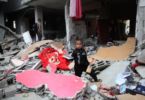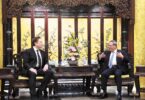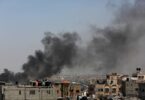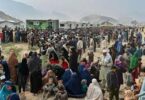Talking to media and addressing party workers in Lahore, PPP Chairman Bilawal Bhutto Zardari lambasted the PTI government for what he called implementing pro-rich polices and claimed that all past governments of his party implemented policies aimed at exclusively benefiting the downtrodden. He alleged that working class is bearing the entire brunt of economic policies of the government that are designed to concentrating wealth in the hands of rich and affluent few. He charged the government to have mortgaged the economy with the International Monetary Fund (INF) and questioned the rationale behind inducting technocrats who remained on its payroll and it were they who have finalised the bailout package with the global lending agency and are holding holding talks on its implementation with staff level missions. Bilawal invited labourers, farmers and poor people to join hands with him to make Pakistan a prosperous country.
Historical facts negate pro-poor stance of PPP leadership. In the decade of 60s Pakistan’s economy was booming and expanding in the region, continuously registering a growth rate of 8 percent. Industrial workers and government employees were getting wages and salaries more than their monthly expenditures. Full employment level had been reached, baring frictional unemployment. When first PPP government assumed power in 1972, the nationalization of all categories of private sector industries and bank ruined the economy. Inefficient cronies were placed in management cadres. Industrial environment was vitiated and a number of workers were killed by straight police firing in Karachi, the industrial hub of the country. National currency was devalued by 60 percent and exports facilitation incentives such as bonus voucher scheme was discarded. Fast downturn of economy started, economic growth fell to 2.2 percent as per the data of statistical year-books of 1974-77 and for the first time rampant unemployment of industrial labor, technicians and engineers appeared. Hence entering into first IMF programme became inevitable. Scarcity of food commodities and essential consumers’ goods hit hard people of low and fixed income groups. Ethnic divide was created in Sindh by declaring Sindhi as official language and Urdu speaking people in the interior Sindh were targeted during their peaceful protest on language issue.
The succeeding unelected government revived the economy and put it on the upward trajectory of growth. But in the first Benazir Bhutto government it again stagnated, profit earning state enterprises were overstaffed with political appointments and hitherto profit making PIA and Steel Mill went into losses. The legacy of 60 plus bleeding state enterprises are devouring now Rs.400 billion every year with cumulative losses of Rs.1.6 trillion. Out of these huge losses incurring entities only PIA has been put on the path of revival by the present government. In Benazir Bhutto second government, projects of electricity generation from cheap hydel sources was abandoned and shady thermal power generation and purchase agreements were made with Independent Power Producers, which has rocked the economy with unaffordable tariff for all category of consumers and piling of power sector circular debt of Rs.1.96 trillion, which is increasing by Rs.30 billion month-on-month basis. In the last PPP government, a liability of rental power plants was created and agriculture sector was hit by enforcing a legislation of gas infrastructure development cess to collect this unnecessary levy from farmers while buying fertilizers. The fertilizer companies collected Rs.534 billion from farmers but did not deposit the money in the national kitty. Present government has abolished this levy and it has launched a three year agriculture emergency programme for increasing yield per acre and crops diversification.
As far the critique against current IMF Extended Fund Facility, all PPP governments had sought far loans from this global lending agency. It merits mention that incumbent advisor on finance was also holding this portfolio in the last PPP government. Criticism on the ongoing IMF economic reforms programme is uncalled for. People benefit from growing economy in terms of job opportunities, better wages and lower prices as result of increased production and not mere catchy and misleading slogans.






